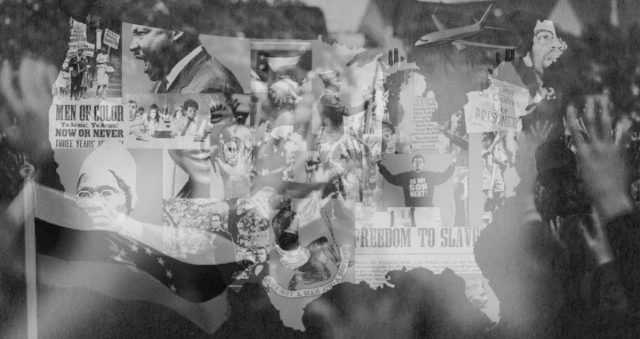
There’s a perception among many Venezuelans that those of us living in the United States are facing a remake of the crisis that forced us out of the country. This adds to the conflicting views, at home and abroad, of a country that has become a key player in the Venezuelan crisis
By Caracas Chronicles – María Isabel Puerta Riera
Jul 12, 2021
The social unrest in 2020 turned the racial divide confronting American society into an opportunity to demonize minority groups. The increase in gun sales during the pandemic was fueled by a campaign based on stoking the fear of violent Black Lives Matter protests. Not without dismay, we found Venezuelan ex-pats piling on BLM, accusing them of being part of the Latin American socialist agenda.
A straightforward argument would be to concede that we, Venezuelans, can be racist. Another more nuanced approach would consider a combination of prejudice and unawareness of the country’s historical context. I’ve found this to be the case with the debate on cancel culture, wokeness, and critical race theory, which has renewed the talk among Venezuelans about the United States being on the brink of becoming a new Venezuela.
Seeing in Colors
As I’ve argued before, Latinos, in general, and Venezuelans, in particular, have remained absent from the debate of race as a cultural marker. In a context of predominantly mixed societies with a significant European presence, it’s frequently ignored, or in most cases, treated as class conflict.
I’ve been listening to Venezuelans complain about the obsession this country has with race, followed by the usual disclaimer: “But, I’m not racist.” There’s no discussion that this country has a complicated relationship with race. Now, if you are going to join the fray, better be equipped. The cultural challenges of learning a new language and adapting to an institutional framework where race is relevant to become burdensome for those unclear about their own racial identity.
This past year has been excruciating for all of us. It’s brought more challenges to an already unstable field for those of us in academia. Our students have had to adapt to a very different learning environment with limited support. In addition to the isolation, the social unrest across the country was especially felt among the minorities in our student body. On more than one occasion, I had to reach out to students feeling the anguish through the protest wave.
When Venezuelans argue that the United States is under threat by the “woke left,” there seems to be a lack of background.
The notion of “cancel culture,” appropriated by right-wing media in the United States, has become an expression used to denigrate those fighting for social justice. It’s also been adopted by people who have little understanding of the cultural circumstances of its original use. People talking about the American cancel culture debate and its racial reckoning without acknowledging their own racial little secret is certainly something to behold.
The fact that these expressions were initially a product of Black culture, and are being weaponized by the American right, should be enough to understand that this discussion needs context to be fully addressed. Initiating a contentious public debate, the New York Times Magazine’s 1619 Project, published in 2019, challenged the historical vision of a nation founded on the principles that all men were created equal. The immediate backlash presented it as a misconstruction of the founding of the United States, with former President Trump accusing the New York Times of partaking in cancel culture while promoting his own version, as he downplayed the core argument of the role of race.
…
Read More: Caracas Chronicles – Understanding the ‘Woke’ movement is understanding exclusion
…

